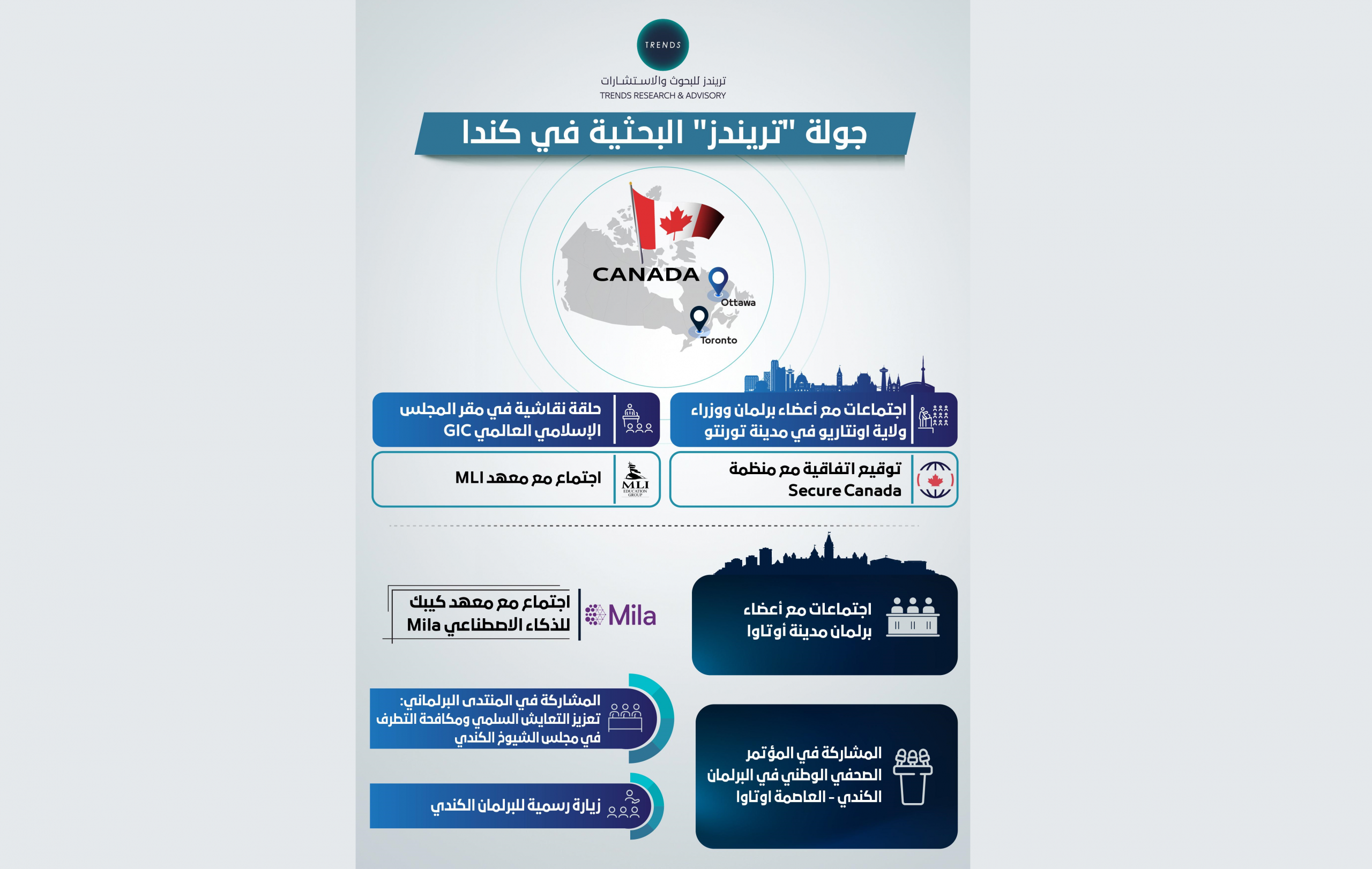TRENDS Research & Advisory is launching an intensive academic research tour to Canada from November 18-20, 2025, as part of its efforts to expand its global presence and reinforce its role as a knowledge bridge linking think tanks in the Arab and Gulf regions with their counterparts in Canada and North America.
The tour is supervised and organized by the TRENDS Virtual Office in Montreal and includes visits to Toronto and Ottawa. It features a rich program of official meetings, academic sessions, and high-level strategic partnerships.
Dr. Mohammed Abdullah Al-Ali, CEO of TRENDS Research & Advisory, affirmed that this tour represents “an important milestone in the center’s international trajectory, embodying its vision to serve as a global dialogue platform and a proactive contributor to knowledge production and solutions for contemporary challenges.”
A Packed Itinerary
The tour’s program includes a series of prominent activities and events, including academic discussions in Toronto with members of parliament and ministers of the Province of Ontario; a panel discussion at the Global Imams Council (GIC); the signing of a cooperation agreement with Secure Canada; and a dialogue session with Mila, the Quebec Artificial Intelligence Institute.
In the capital, Ottawa, the tour features meetings and discussions with members of the Ottawa Parliament, including MP Vince Gasparro and MP Ziad Aboultaif, as well as a dialogue session with Senator Leo Housakos.
The tour also includes participation in the National Press Conference inside the Canadian Parliament, hosted by MP Shuv Majumdar.
TRENDS will conclude the tour by participating in the Parliamentary forum on Peace, Coexistence, and Countering Extremism, held under the theme “Participatory and Applied Perspectives.” The forum will include two main sessions. The first, on implementing the Document on Human Fraternity and the Abraham Accords, will be held under the title “Advancing the Implementation of the Document on Human Fraternity and the Abraham Accords: From Principles to Practice”. The session will explore how to translate the document’s principles and accords into practical policies through education and intercultural cooperation to foster peace, dialogue, and sustainable development.
The second session, under the theme Confronting Extremism: Actors, Challenges, and Approaches, will examine the evolving dynamics of extremism, analyzing key actors, ideological frameworks, and transnational networks. It will aim to assess intellectual and societal policies and strategies to address the roots of extremism, promote moderation, and build resilience.



